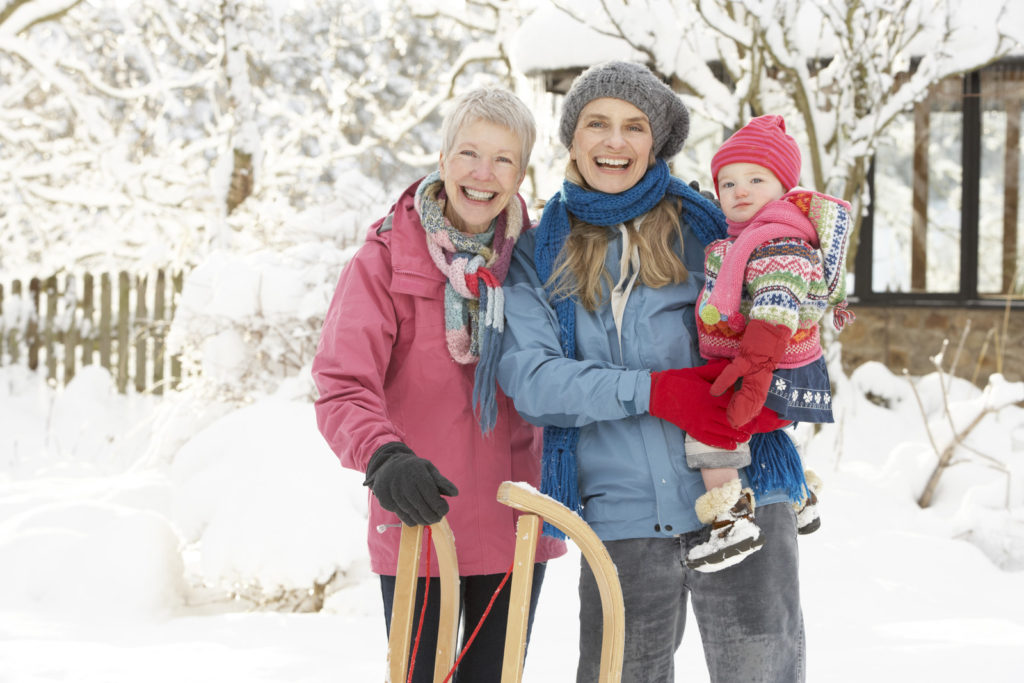Seniors Vulnerable During Winter Season
Although winter in Florida doesn’t bring snow and ice (that’s why we live here), senior safety is still important. Seniors and people with disabilities are particularly vulnerable during this season and should take extra precautions to be prepared for whatever Mother Nature conjures up.
Senior Safety Tips for Caregivers and Friends:
- Check-in on elderly family and neighbors. If you’re at all concerned about someone’s safety, don’t let him or her put you off. Stop by if you can.
- Check supplies of food and emergency items like flashlights, batteries, and battery-powered radio
- Check to make sure a space heater is being used properly: plug into outlet, not extension cord. Keep at least 3 feet away from anything that could burn, including the wall.
- Plan ahead for any emergency power needs of mechanical medical equipment.
- Offer to drive, if someone must get out (pick up a prescription, medical appointment, etc.),
- Be a friend. Some seniors can get very isolated and stormy weather can make it worse.
- Once the storm as passed – inspect property as soon as possible for damage. You may be able to help an older loved one with repairs or insurance matters.
Senior Safety Concern: Hypothermia
Hypothermia occurs when your body temperature drops to a dangerous level. Your body temperature can drop when you are out in the cold for an extended time because it begins to lose heat quickly. Older adults are at an increased risk of hypothermia due to changes that happen to your body with aging.
Warning Signs: cold skin that is pale or ashy; feeling very tired, confused and sleepy; feeling weak; problems walking; slowed breathing or heart rate. Call 911 if you think you or someone else has hypothermia.
Precautions to Take
- Stay indoors (or don’t stay outside for very long).
- Keep indoor temperature at 65 degrees or warmer.
- Stay dry because wet clothing chills your body more quickly.
- Dress Smart – protect your lungs from cold air. Layer up! Wearing 2 or 3 thinner layers of loose-fitting clothing is warmer than a single layer of thick clothing. Think about getting your thermals!
- Essential winter wears: hats, gloves or preferably mittens, winter coat, boots, and a scarf to cover your mouth and nose.
Senior Safety Concern: Fires and Carbon Monoxide Poisoning
During the winter months, it is common to use the fireplace or other heating sources, such as natural gas, kerosene and other fuels. Unless fireplaces, wood and gas stoves and gas appliances are properly vented, cleaned, and used, they can leak dangerous amounts of carbon monoxide—a deadly gas that you cannot see or smell. These and other appliances, such as space heaters, can also be fire hazards.
Warning Signs: headache, weakness, nausea or vomiting, dizziness, confusion, blurred vision, loss of consciousness
If you think you may have carbon monoxide poisioning, get into fresh air and get medical care immediately.
Precautions to Take
- Call an inspector to have your chimneys and flues inspected – preferred annually.
- Open a window (when using a kerosene stove) –just a crack will do.
- Place smoke detectors and battery-operated carbon monoxide detectors in strategic places – especially in areas where you use fireplaces, wood stoves, or kerosene heaters.
- Make sure space heaters are at least 3 feet away from anything that might catch fire, such as curtains, bedding and furniture.
- Never try to heat your home using a gas stove, charcoal grill, or other stove not made for home heating.
- If there is a fire, don’t try to put it out. Leave the house and call 911.
Senior Safety Concern: Medical Needs During Emergencies
When planning for emergencies, older adults with special medical needs should remember to include the following:
- First-aid kit
- Prescription medicines, list of medications including dosage, list of any allergies
- Extra eyeglasses and hearing-aid batteries
- Extra wheelchair batteries, oxygen
- List of the style and serial numbers of medical devices such as pacemakers
- Medical insurance and Medicare cards
- List of doctors and relatives or friends who should be notified if you are injured
- If you have home health care service, plan ahead with your agency for emergency procedures.
- Teach those who may need to assist you in an emergency how to operate necessary equipment. Be sure they will be able to reach you.
Senior safety information compiled from the American Red Cross and Health In Aging organizations.
How The Miller Elder Law Firm Can Help
Allow our experience in the field to work on your behalf. Contact The Miller Elder Law Firm today for an initial consultation at (352) 379-1900 or fill out our convenient contact form.

